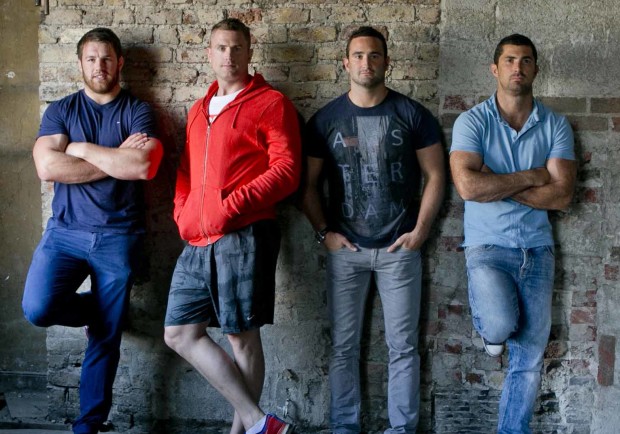If your business idea has been slammed or rejected, take solace from the fact that many world-changing ideas were dismissed as non-runners.
1: “There’s no chance that the iPhone is going to get market share.”
The launch of the iPhone by Steve Jobs (pictured) signalled the dawn of a new era for mobile communications – the age of the smartphone. The iPhone, however, had some strong and influential critics before its release. One of its most famous detractors was the Microsoft CEO, Steve Ballmer. In 2007, Ballmer was adamant that there would be no place for an iPhone and stated, “There’s no chance that the iPhone is going to get any significant market share. No chance. It’s a $500 subsidised item.” Apple currently has the second largest market share in the smartphone industry with 14% and is currently valued at over $700 billion.

2: “The potential world market for copy machines is 5,000 at most.”
While it’s understandable to harbour doubt over certain ideas, how could anyone doubt the potential for a photocopier? “The potential world market for copy machines is 5,000 at most”. In 1979, IBM gave this piece of advice to the eventual founders of Xerox. They were of the opinion that there would be no demand for it and that they should avoid bringing one to market. The photocopier, as you know, is the cornerstone of any functioning office. In 2014, Xerox had revenues of almost $20 billion. It’s safe to assume that the world market for photocopiers is more than 5,000.

3: “The telephone has too many shortcomings to be seriously considered as a form of communication.”
We often forget that there was a time before smartphones, and the ordinary landline telephone was the primary form of communication (apart from talking face-to-face of course). The man responsible for inventing the telephone was Alexander Graham Bell. However, Bell had his fair share of detractors, most notably Western Union president William Orton, who stated, “The telephone has too many shortcomings to be seriously considered as a form of communication”. Orton probably should have kept his thoughts to himself.

4: “Television won’t be able to hold on to any market it captures after the first six months.”
It was another Scotsman, John Logie Baird, who invented the television. Surprisingly, even Baird had his doubters. The television, while truly ground-breaking, was met with resistance from some pretty influential figures. Darryl Zanuck, co-founder of 20th Century Fox and an Academy Award-winning director, was sceptical about the TV, predicting: “Television won’t be able to hold on to any market it captures after the first six months. People will soon get tired of staring at a plywood box every night”. No Darryl, no they won’t.
RELATED: Have a great business idea but unsure where to start? Download this beautiful easy-to-use Business Plan to help get you started.

5: “I think there is a world market for maybe five computers.”
The computer, in particular, divided a lot of opinions in its infancy. IBM, who doubted the viability of the photocopier, didn’t see a demand for the computer in the marketplace with their president saying, “I think there is a world market for maybe five computers.” IBM wasn’t the only sceptic. Ken Olsen (founder of DEC) openly wondered why people would ever want a personal computer in their homes.
6: “The horse is here to stay, but the automobile is only a novelty – a fad.”
Would you believe that even the car was dismissed as a fad by an influential banker? Step forward the Michigan Savings Bank president who advised Horace Rackham (Henry Ford’s lawyer) that, “The horse is here to stay, but the automobile is only a novelty – a fad.” Global sales of passenger cars are forecast to hit 73.9 million vehicles in 2015. Luckily for Rackham he ignored the banks advice, invested in Ford automobiles and went on to become a very wealthy man. As did a certain Henry Ford.

7: “The wireless music box has no imaginable commercial value.”
At number seven on the list, we have the radio. Guglielmo Marconi, its inventor, believed that it would be well received; however, not everyone agreed. David Sarnoff, a pioneer of the American radio and broadcast industry, envisioned a future of radio broadcasting and urged for investment in the radio in the 1920s. He was met with scepticism, with associates claiming, “The wireless music box has no imaginable commercial value. Who would pay for a message sent to nobody in particular?” We don’t need to tell you how successful radio became.

8: “I predict the Internet will soon go spectacularly supernova.”
In 1995, Robert Metcalfe, the man responsible for the Ethernet (not to be confused with the Internet), predicted that the end was near for the World Wide Web. “Almost all of the many predictions now being made about 1996 hinge on the Internet’s continuing exponential growth. But I predict the Internet will soon go spectacularly supernova (sic) and in 1996 catastrophically collapse.” Metcalfe promised to eat his words if his prediction failed to come to fruition. Funnily enough, in 1999, Metcalfe delivered on his promise when he took out the article at a major conference, put it in a blender, added water, ate the remains and received a rousing applause from the audience.

9: “Sure who’d buy water?”
Our first Irish entry, we’re going back to the early 1980s when Gay Byrne infamously dismissed Ballygowan on a Late Late Show enterprise special. Gay, having been presented with a bottle of water from Ballygowan founder Geoff Read, scoffed at the idea believing that nobody in Ireland would pay money for bottled water. Such was Gay Byrne’s influence; his comments could have ended Ballygowan’s adventure there and then. Fast forward to the present day and Ballygowan is now the undisputed leader in the Irish bottled market industry. Ballygowan currently distributes approximately 40 million litres of water every year with a production plant capable of producing up to 600 bottles per minute.
10: “These Google guys, they want to be billionaires and rock stars and go to conferences and all that. Let us see if they still want to run the business in two to three years.”
Last, but certainly not least, we come to the tale of Google. Google has (surprisingly) had some doubters throughout the years. However, we’ve decided to go with this quote from Bill Gates. “These Google guys, they want to be billionaires and rock stars and go to conferences and all that. Let us see if they still want to run the business in two to three years.” Gates was, of course, referring to Larry Page and Sergey Brin (the co-founders of Google). Those Google guys certainly did want to run a business, and they’ve been instrumental in making Google one the world’s most valuable companies; it’s currently valued at $368 billion.
So, there you have it. Some of the most influential people in history have made catastrophically incorrect predictions. The next time someone slams a business idea of yours, or mocks your desire to invent something new, perhaps you should ignore them?
READ: How to brainstorm for business ideas.
Images: Jaguar PS / Shutterstock.com; meunierd / Shutterstock.com; and GongTo / Shutterstock.com; Denys Prykhodov / Shutterstock.com and various no-repro.








